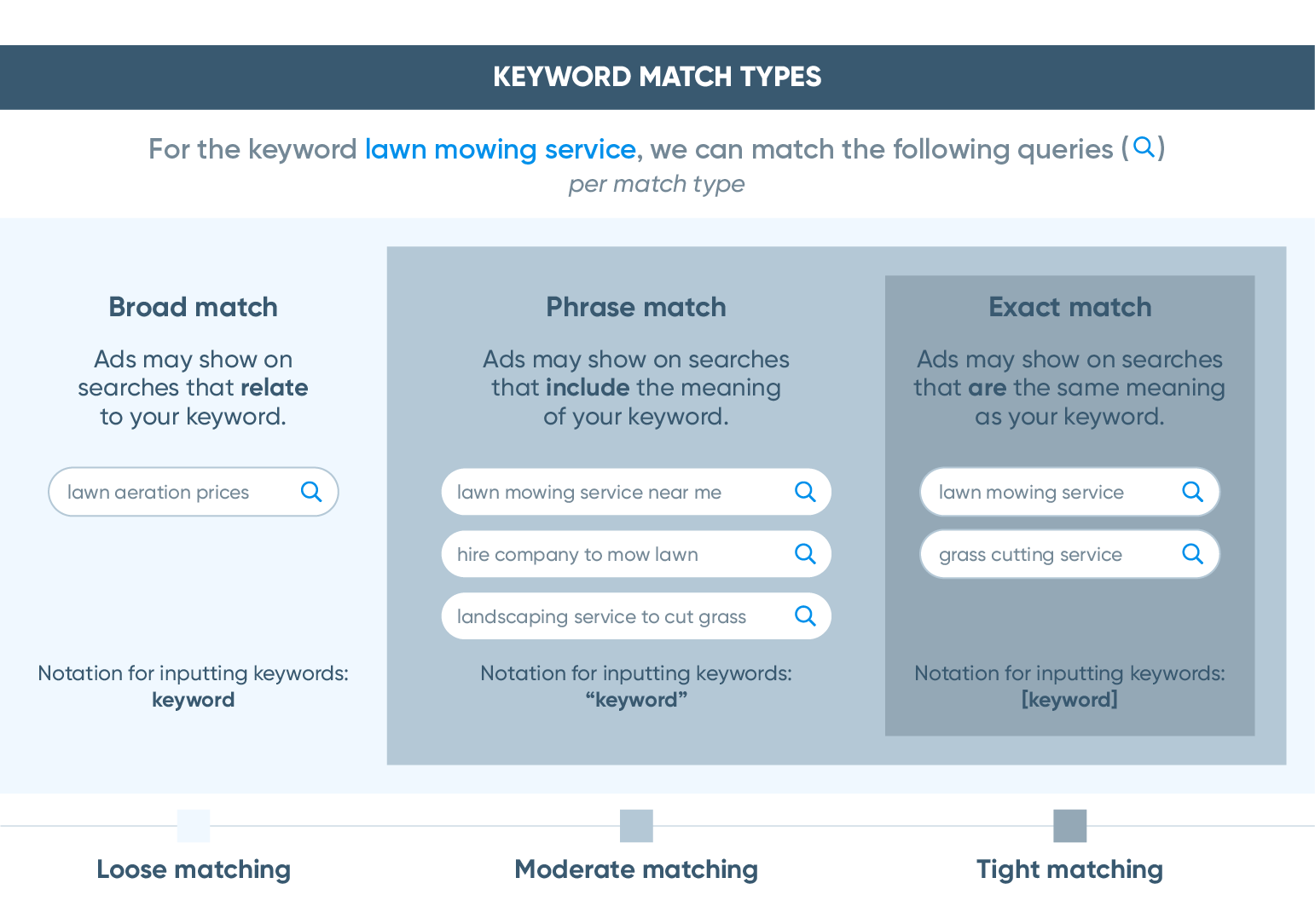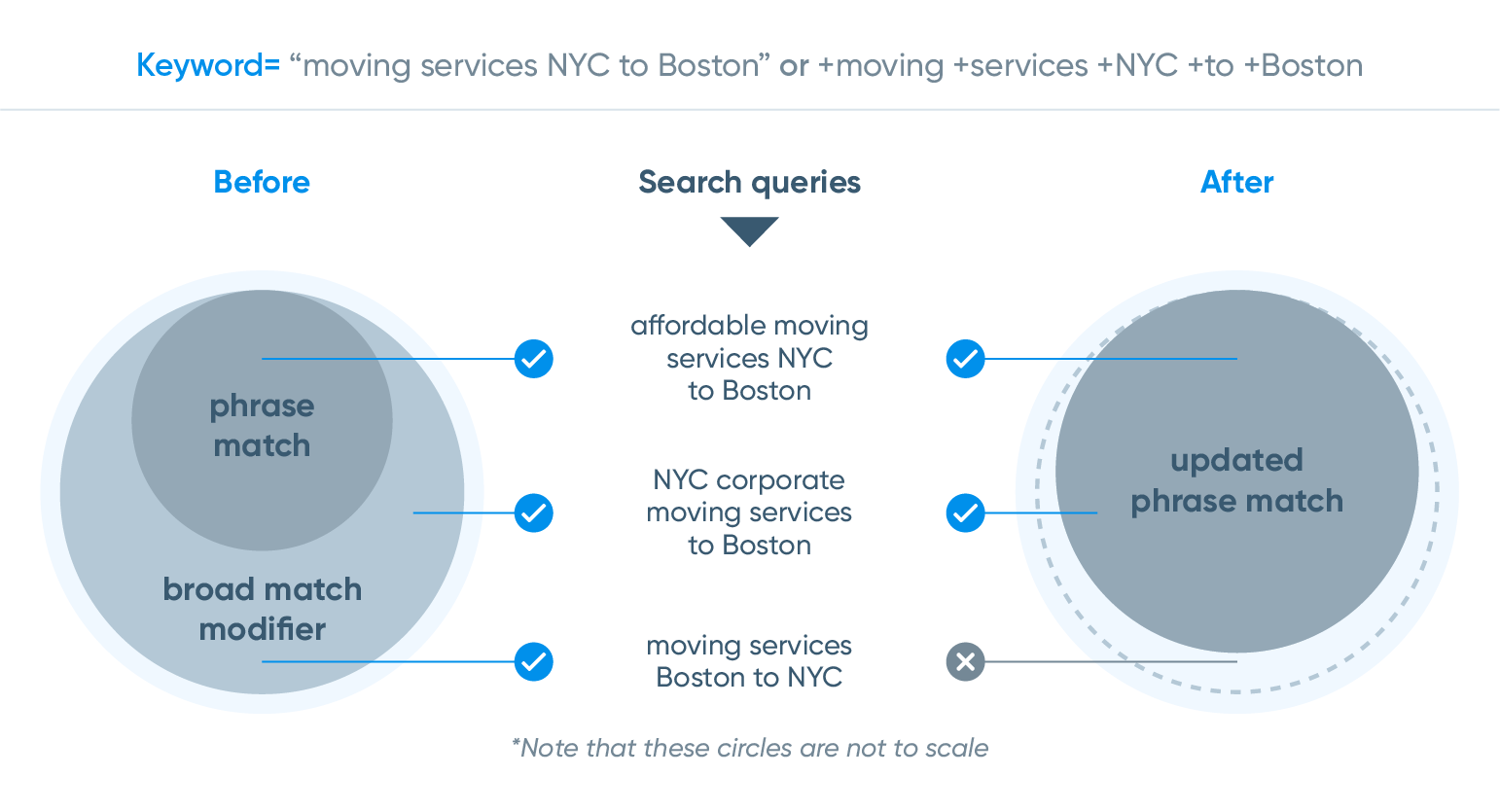In February 2021, Google announced that it would be retiring its Broad Match Modifier (BMM) keyword match type and incorporating its behaviors into the Phrase Match type. Beginning in July 2021, all legacy BMM match types and Phrase Match types will have the same phrase matching behavior. This is to say that the BMM match type will effectively be “retired” in July and new keywords will not be able to use this match type. Existing BMM keywords will remain enabled within accounts but will behave as Phrase Match. Microsoft (Bing) Ads are also making these updates.
What Are Match Types?
A match type is used to determine how closely a keyword should match with a user’s search in order to serve an ad. Below are the three match types that exist today in Google Ads and Microsoft (Bing) Ads.

Note that the BMM match type is not outlined in the figure above but was defined as follows: BMM [was] a Broad Match keyword that allows the user to specify and anchor certain words as mandatory for targeting using a “+” in front of the keyword. Example: +lawn +mowing +service +near +me. This match type [required] all words using the “+” to be included within a search, but not necessarily in a specific order.
Why Match Types Are Changing
According to Google, this update simplifies match types by combining the control of phrase match and the expanded reach of the discontinued BMM. The new phrase matching behavior is more expansive than the former phrase match, and slightly more restrictive. The changes are focused on matching the user’s query with their intent, regardless of how they are searching.

How This Affects Clients
We expect that phrase match keywords will see an increase in traffic while legacy BMM keywords will see the opposite effect. It is likely that campaigns segmented by match type will experience fluctuations in volume (impressions, clicks, and spend), and campaign budgets may require adjustment. While we do not anticipate that these changes will have any detrimental effect on accounts, we do understand that as Google and Microsoft make these changes, they are moving more towards Smart Bidding and automation–meaning less manual control of campaigns and heavier reliance on the search engine’s recommendations.
As we enter the 2022 planning season, the Butler/Till Search Team will continue to monitor these updates closely and create a proactive approach to help further provide business transformation for our clients.





